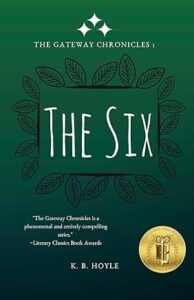 Takeaway: How we read scripture and understand God impacts how we live and share the gospel with others.
Takeaway: How we read scripture and understand God impacts how we live and share the gospel with others.
Sinners in the Hands of a Loving God is the fourth book by Brian Zahnd I have read. Zahnd is a pastor and has been helpful to me over the past decade as my theology and understanding of Christianity has shifted. His own shifts have been fairly similar to mine, although he is a generation older than I am. Zahnd is a popularizer and writes personally and pastorally, and I mean that as a complement. Academic theologians and biblical scholars are important, but in order for the academic work to impact the church, pastors and popularizers need to take the insights of the academics and put it into language and structure that are understandable to the rest of us.
In a somewhat similar way to how Rachel Held Evan’s book Inspired, was really about hermeneutics (how to read scripture), Sinners in the Hands of a Loving God is really about the theology of God with secondary theme of the problem of evil. The title, of course, is a play on Jonathan Edwards’ famous sermon. Zahnd talks about how he wrote out and may a book of Edwards’ sermon because he wanted to learn how to evangelize like Edwards. Edwards was a central character in the Great Awakening, an early American revival that swept the US and the UK a generation before the American Revolution.
Edwards was trying to illustrated the importance of becoming a true follower of Christ through the sermon, but Zahnd starts by pointing out the problem with conceiving of God not as a loving father, but as a distant wrathful deity. This split in Christianity between God as Love and God as Wrath has a long history and is still current. Zahnd spends much of the book disassembling the perspective on God, the Father, as primarily wrathful. Much of that disassembly goes back to scripture and gives a new spin on how scripture is read. He works through the genocide texts of the Old Testament, the crucifixion of Christ, Hell and a long section on the book of Revelation.

 Summary: The life and times of a 15th century healer.
Summary: The life and times of a 15th century healer.  Summary: Sort of an interview, sort of a biography, sort of an introduction to Evangelism in Catholicism.
Summary: Sort of an interview, sort of a biography, sort of an introduction to Evangelism in Catholicism.  Summary: A whole spy thriller reveal over dinner.
Summary: A whole spy thriller reveal over dinner.

 Summary: A book on physical and spiritual healing, published in 1947 by a Episcopal Priest’s wife. Anges Sanford mentored and impacted many, included Dallas Willard.
Summary: A book on physical and spiritual healing, published in 1947 by a Episcopal Priest’s wife. Anges Sanford mentored and impacted many, included Dallas Willard. 
 Summary: A broad overview of Rachel Held Evan’s hermeneutics of reading the bible, written for people who don’t really use the word hermeneutics.
Summary: A broad overview of Rachel Held Evan’s hermeneutics of reading the bible, written for people who don’t really use the word hermeneutics.